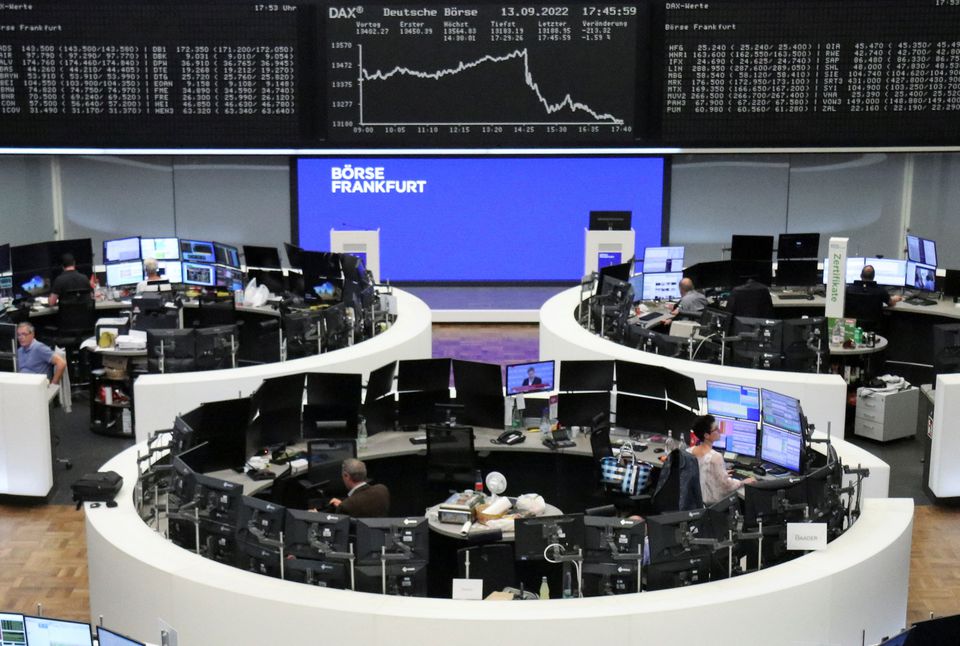World stocks were stuck in a sea of red on Wednesday as markets braced for an even more aggressive U.S. Federal Reserve as inflation roars, and the yen jumped as Japan gave its strongest signal yet that it could act to shore up the battered currency.
The yen rallied over 1%, pulling away from recent 24-year lows versus the dollar, on a report that the Bank of Japan had conducted a rate check in apparent preparation for currency intervention.
Tuesday's U.S. data showing underlying inflation broadening meanwhile reverberated globally.
European shares slipped 0.3%, retreating further from almost three-week highs hit a day earlier, and London's FTSE slid as much as 1% even as data showed British inflation fell unexpectedly in August.
In Asia, Japan's Nikkei tumbled 2.6% and MSCI's broadest index of Asia-Pacific shares outside Japan fell 2.2%. U.S. stock futures were mixed a day after the steepest fall on Wall Street in two years.
"The Fed has got further to go and there is an understanding that the peak rate will now be above 4%," said Seema Shah, chief strategist at Principal Global Investors.
"There had been a feeling that inflation was moderating but the data shows just how sticky inflation is and that requires the Fed to step it up a gear."
Money markets fully price in an interest rate hike of at least 75 basis points at next week's Fed policy meeting, with a 38% probability of a full percentage point increase to the Fed funds target rate, according to CME's FedWatch tool.
The probability of a 100 bps hike was zero before Tuesday's inflation data.
That outlook kept upward pressure on U.S. Treasury yields, with two-year yields rising to a fresh 15-year high at 3.804% in London trade .
Intervention watch
The outlook for further aggressive rate hikes has boosted the dollar, causing angst among major central banks that have seen their currencies weaken as this fuels imported inflation.
But the yen rallied over 1% to around 143 per dollar on a report that Bank of Japan had conducted a rate check in apparent preparation for currency intervention.
Earlier, Japanese Finance Minister Shunichi Suzuki said that currency intervention was among options the government would consider.
The last time Japan intervened to support its currency was in 1998, when the Asian financial crisis triggered a yen selloff and rapid capital outflows.
"Verbal jawboning may help to slow the pace of yen depreciation but is not likely to alter the trend unless USD and UST yields decisively turn lower or BoJ changes or tweaks its policy," said OCBC currency strategist Christopher Wong.
While major central banks have been hiking interest rates, the Bank of Japan remains the holdout dove and has this year stuck to its ultra-easy monetary policy stance.
Elsewhere, oil prices were little changed, with U.S. crude at $87.41 per barrel and Brent steady at $93.20. Spot gold was traded at $1705 per ounce, up about 0.2%.




















































